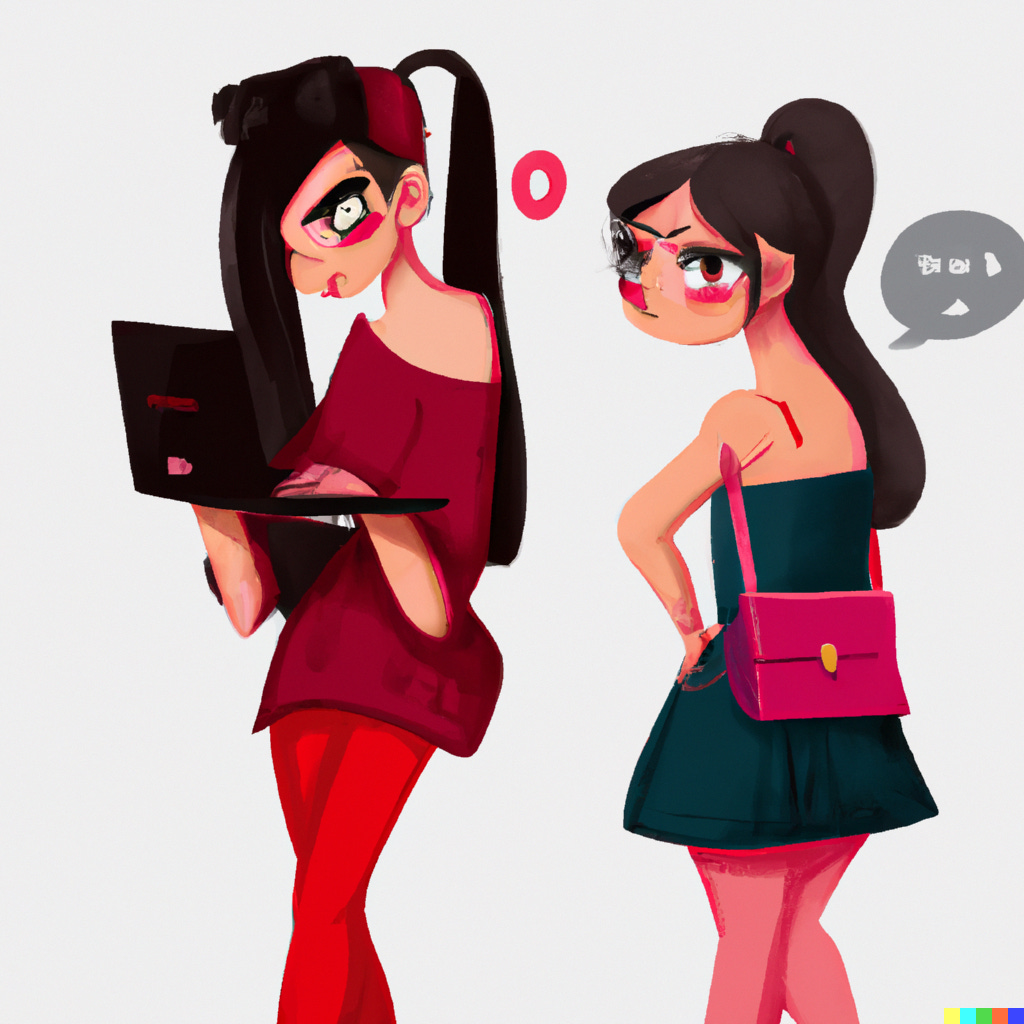Identity Crisis
In early high school, I ran the 400-meter sprint to get myself to enjoy running. But I never found myself enjoying it. Running felt like pure suffering, but maybe suffering I could learn to love? I never practiced outside of school and, therefore, never improved as much as I could have if I were completely devoted to sprinting. The truth is that I did not prioritize it that much because I could never see myself having the same lifestyle as the girl next to me that was a runner all her life. That was her brand. That was her aesthetic. Me? I could never memorize all the distances and have a running schedule and routine.
In a similar but arguably more relevant scenario, I was allergic to fashion and make-up throughout most of grade school. My mom applied the occasional eyeliner to my eyes, but you hardly ever caught me with lip gloss, concealer, or even with my nails done. I rarely made conscious decisions about my style or outward appearance. I went with whatever made me feel comfortable and most productive. My younger sister loved to embrace the “cute girl” aesthetic and thought about perfecting her hair routinely. This is not to say that it was a good or bad thing - it was just her *thing*. I could never see myself being the “girly girl” I’d have to embrace if I put in the effort to understand contouring and color-blending outfits. It wouldn’t be me.
different identities and aesthetics confusing the OP
But when I wanted to assume the identity of a programmer or an aspiring machine learning engineer, it didn’t take me too long to label myself as someone interested in “computation and cognition” and all sorts of engineering-related tags and jokes in my future bios. It felt right. It was the type of aesthetic I was happy with people assuming I fit the stereotype. You bet I’m a “wild neural net trainer,” and a mash of “lucky entropy.” I didn’t feel allergic to self-labeling in the way I would to the girl-that-knows-all-about-fashion.
When you’ve set out to transform your current lifestyle in some pivotal way and know what it takes to get there but feel a compelling resistance against making such a change, consider that you may be dealing with a conflict of aesthetics.
Integrating Identities
If you’re finally ready to enter a transformative arc in your life — whether to become an avid reader without undertaking the aesthetic of an introvert or to finally understand crypto without being considered a “crypto bro” — here are some thoughts to consider.
What if I assume this aesthetic like a costume, and it fits well, and I enjoy it?
What if I let this identity become one of many I hold in my wardrobe?
What if I do this but don’t let it become any part of my aesthetic, and it is totally invisible?
A common blocker that prevents integration of the desired aesthetic is that you need to assume it entirely to be good at it (if you want to become a morning person, you have to immerse yourself entirely in the common things a morning person does).
I claim you can become moderately good at assuming any type of identity without it becoming your entire personality. All you need to do is focus more on what you want to become and not focus as much on resisting what you don’t want to become. All this is to say that it may be worth wearing many costumes, regardless, as you will embrace many unpredictable identities in the future.
May you experience multiple literacies, identities, and universes—unlocking a deeply enriching life :-)




Zizek has too many comments on how the mask is the identity, and that "authentic self" is BS. There are a few things to consider:
1. Do you enjoy the mask aesthetically?
2. Do you want to remix multiple masks into something new?
3. Is the mask made such that it is for serving others?